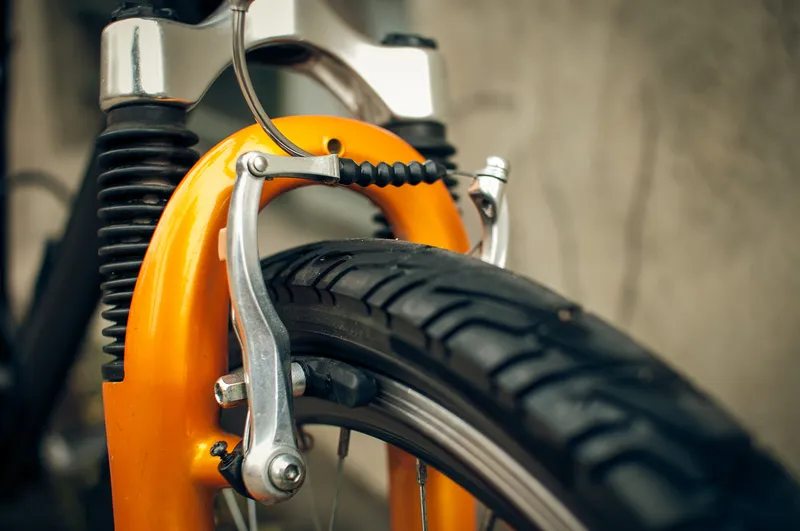A new project funded by the UK’s Transport for London (TfL) will independently test blind spot safety technology, which can be fitted to Heavy Goods Vehicles (HGVs) to help reduce the risk of collisions between HGVs, pedestrians and cyclists.
One of TfL's top priorities is to reduce by 40 per cent the number of people killed or seriously injured on London's roads by 2020. Recently, the Mayor and TfL published six commitments which, working with a range of partners, are guiding initiatives to deliver thi
April 24, 2014
Read time: 3 mins
A new project funded by the UK’s 1466 Transport for London (TfL) will independently test blind spot safety technology, which can be fitted to Heavy Goods Vehicles (HGVs) to help reduce the risk of collisions between HGVs, pedestrians and cyclists.
One of TfL's top priorities is to reduce by 40 per cent the number of people killed or seriously injured on London's roads by 2020. Recently, the Mayor and TfL published six commitments which, working with a range of partners, are guiding initiatives to deliver this. In particular, action is being taken to prioritise the safety of the most vulnerable road users: pedestrians, cyclists and motorcyclists.
The initiative, which builds on TfL’s work into Construction Logistics and Cyclists’ Safety, will be carried out by the independent Transport Research Laboratory (491 TRL) to evaluate the effectiveness of the full range of blind spot safety technology in spotting pedestrians and cyclists. This includes camera monitoring systems, optical and radar detection systems and other sensors fitted to HGVs.
The findings will then be used to create new and detailed performance criteria, such as the distance objects can be detected, how easily the equipment detects vulnerable road users, and how reliable the equipment is, to allow for independent testing and evaluation of products on the market today.
Companies will be able to use the new standard testing criteria to make a more informed choice about the types of safety equipment they invest in for their fleet vehicles. It will also help ensure a wider take-up of the best equipment while encouraging further innovation from product developers, helping to save lives both across London and more widely across the UK.
TRL has invited more than a dozen companies across the UK to take part in the evaluation and become one of the first suppliers to be accredited using this approach. Once completed, the research will be made available to download from the TfL website and be used by the operators and manufacturers of HGVs and suppliers of safety technology.
Leon Daniels, managing director of Surface Transport at TfL, said: “Improving the safety of all road users is vitally important and, with technology moving so quickly, it is important that companies know that any safety equipment they invest in not only offers value for money, but does what it says on the tin. By funding this project, we can help companies make informed choices, encouraging use of the best equipment available and helping to drive development into further improvements in the future.”
One of TfL's top priorities is to reduce by 40 per cent the number of people killed or seriously injured on London's roads by 2020. Recently, the Mayor and TfL published six commitments which, working with a range of partners, are guiding initiatives to deliver this. In particular, action is being taken to prioritise the safety of the most vulnerable road users: pedestrians, cyclists and motorcyclists.
The initiative, which builds on TfL’s work into Construction Logistics and Cyclists’ Safety, will be carried out by the independent Transport Research Laboratory (
The findings will then be used to create new and detailed performance criteria, such as the distance objects can be detected, how easily the equipment detects vulnerable road users, and how reliable the equipment is, to allow for independent testing and evaluation of products on the market today.
Companies will be able to use the new standard testing criteria to make a more informed choice about the types of safety equipment they invest in for their fleet vehicles. It will also help ensure a wider take-up of the best equipment while encouraging further innovation from product developers, helping to save lives both across London and more widely across the UK.
TRL has invited more than a dozen companies across the UK to take part in the evaluation and become one of the first suppliers to be accredited using this approach. Once completed, the research will be made available to download from the TfL website and be used by the operators and manufacturers of HGVs and suppliers of safety technology.
Leon Daniels, managing director of Surface Transport at TfL, said: “Improving the safety of all road users is vitally important and, with technology moving so quickly, it is important that companies know that any safety equipment they invest in not only offers value for money, but does what it says on the tin. By funding this project, we can help companies make informed choices, encouraging use of the best equipment available and helping to drive development into further improvements in the future.”










